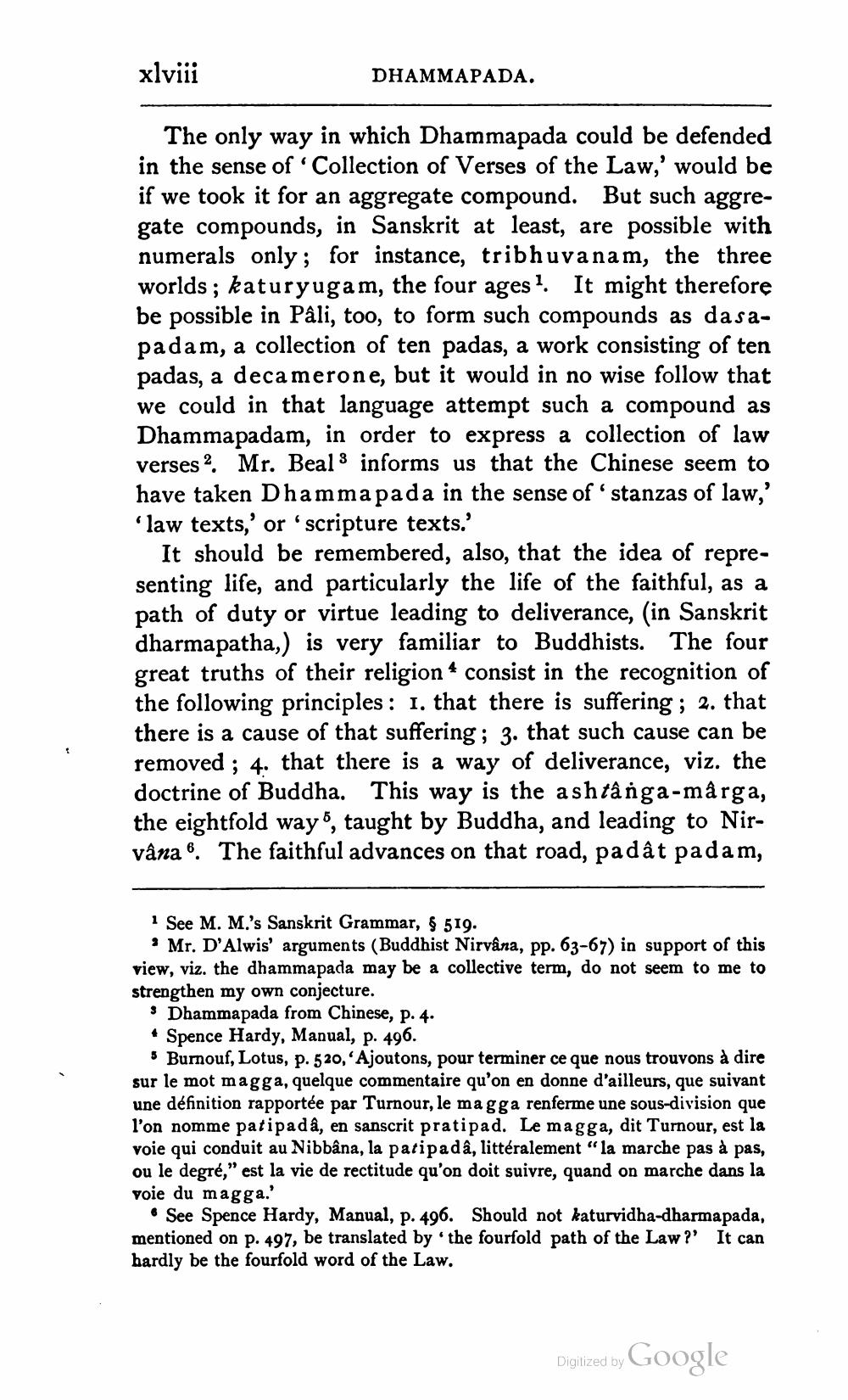________________
xlviii
DHAMMAPADA.
The only way in which Dhammapada could be defended in the sense of Collection of Verses of the Law,' would be if we took it for an aggregate compound. But such aggregate compounds, in Sanskrit at least, are possible with numerals only; for instance, tribhuvanam, the three worlds; katuryugam, the four ages?. It might therefore be possible in Pâli, too, to form such compounds as dasapadam, a collection of ten padas, a work consisting of ten padas, a decamerone, but it would in no wise follow that we could in that language attempt such a compound as Dhammapadam, in order to express a collection of law verses 2. Mr. Beals informs us that the Chinese seem to have taken Dhammapada in the sense of stanzas of law,' 'law texts,' or 'scripture texts.'
It should be remembered, also, that the idea of representing life, and particularly the life of the faithful, as a path of duty or virtue leading to deliverance, (in Sanskrit dharmapatha,) is very familiar to Buddhists. The four great truths of their religion * consist in the recognition of the following principles : 1. that there is suffering ; 2. that there is a cause of that suffering ; 3. that such cause can be removed ; 4. that there is a way of deliverance, viz. the doctrine of Buddha. This way is the ashtânga-mârga, the eightfold ways, taught by Buddha, and leading to Nirvâna 6. The faithful advances on that road, padât padam,
1 See M. M.'s Sanskrit Grammar, $ 519.
* Mr. D'Alwis' arguments (Buddhist Nirvana, pp. 63-67) in support of this view, viz. the dhammapada may be a collective term, do not seem to me to strengthen my own conjecture.
• Dhammapada from Chinese, p. 4. * Spence Hardy, Manual, p. 496.
5 Burnouf, Lotus, p. 520, 'Ajoutons, pour terminer ce que nous trouvons à dire sur le mot magga, quelque commentaire qu'on en donne d'ailleurs, que suivant une définition rapportée par Turnour, le magga renferme une sous-division que l'on nomme patipadâ, en sanscrit pratipad. Le magga, dit Turnour, est la voie qui conduit au Nibbâna, la patipada, littéralement "la marche pas à pas, ou le degré," est la vie de rectitude qu'on doit suivre, quand on marche dans la voie du magga.'
. See Spence Hardy, Manual, p. 496. Should not katurvidha-dharmapada, mentioned on p. 497, be translated by the fourfold path of the Law?' It can hardly be the fourfold word of the Law.
Digitized by Google




